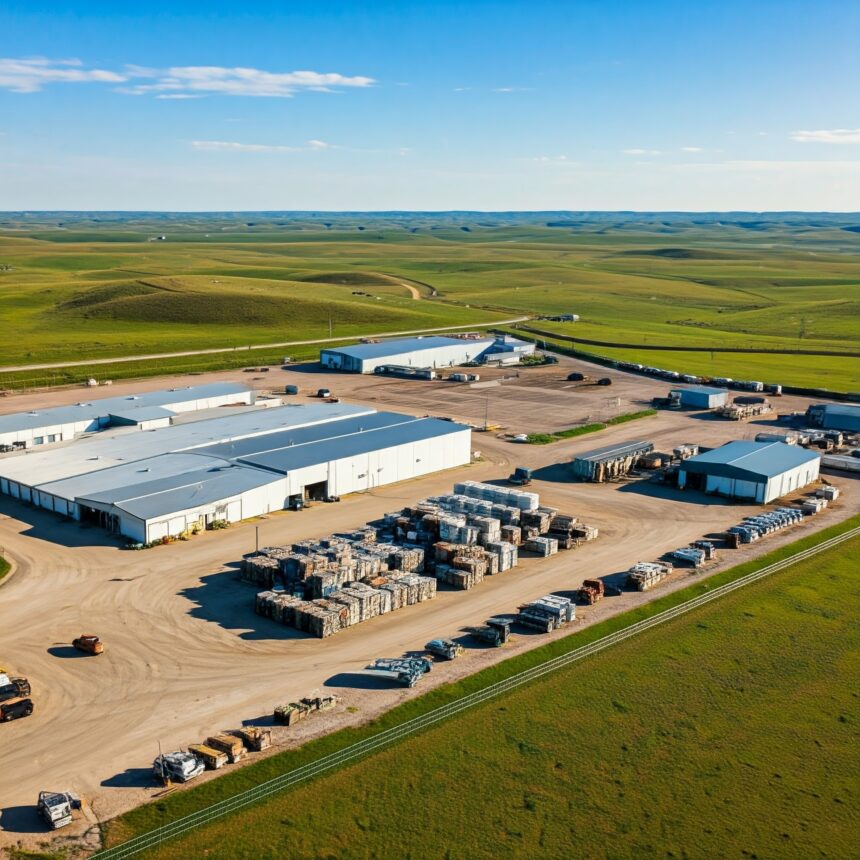Florida, known for its stunning beaches and vibrant wildlife, faces a significant challenge in managing its growing waste. Recycling centers in Florida are at the forefront of tackling this issue, helping to conserve resources, reduce pollution, and protect the environment. If you’ve ever wondered what happens to your recyclables or how you can contribute to a cleaner Florida, this guide has all the answers.
The Role of Recycling Centers
What Do Recycling Centers Do?
Recycling centers are facilities that collect, sort, and process waste materials so they can be reused or repurposed. These centers handle various items, including plastics, metals, paper, glass, and even electronic waste. By diverting materials from landfills, they play a critical role in reducing environmental harm and conserving natural resources.
Why Are Recycling Centers Important for Florida?
With a growing population and a thriving tourism industry, Florida generates significant waste. Recycling centers help manage this waste sustainably, ensuring that valuable materials are recovered and the environmental impact is minimized.
How Recycling Centers Operate in Florida
Collection and Sorting
Recyclables are collected from curbside bins, drop-off locations, and commercial facilities. At the recycling center, materials are sorted using advanced technologies like optical scanners, magnets, and manual labor.
Processing and Repurposing
After sorting, materials are cleaned and processed into raw forms, such as pellets or bales, which are then sold to manufacturers to create new products.
Specialized Facilities
Some recycling centers in Florida focus on specific types of waste, such as e-waste or hazardous materials, ensuring that these items are handled safely and responsibly.
What Can Be Recycled in Florida?
Common Recyclables
- Plastics: Bottles, containers, and certain types of packaging.
- Paper: Newspapers, magazines, cardboard, and office paper.
- Metals: Aluminum cans, steel, and other non-ferrous metals.
- Glass: Bottles and jars in various colors.
Specialty Items
- E-Waste: Old phones, computers, and batteries can often be recycled at designated facilities.
- Household Hazardous Waste: Items like paints, chemicals, and fluorescent bulbs require special handling.
Benefits of Recycling Centers
Environmental Impact
- Reduces Waste: Diverts materials from landfills, reducing methane emissions.
- Conserves Resources: Saves raw materials like trees, water, and minerals.
- Lowers Pollution: Minimizes water and air pollution from manufacturing processes.
Economic Advantages
Recycling centers contribute to the economy by creating jobs in collection, processing, and manufacturing industries. They also reduce costs associated with landfill management.
Community Engagement
Many recycling centers in Florida host educational programs, workshops, and tours to teach residents about the importance of recycling and how to do it effectively.
Challenges Faced by Recycling Center in Florida
Contamination in Recyclables
Non-recyclable items, such as plastic bags or food waste, often end up in recycling bins, making it harder and more costly to process materials.
Market Fluctuations
The demand for recycled materials can vary, impacting the profitability of recycling centers.
Public Awareness
Many people are unsure of what can and cannot be recycled, leading to lower participation rates and inefficiencies.
Innovations in Florida’s Recycling Programs
Advanced Technology
From AI-driven sorting machines to chemical recycling processes, Florida’s centers are leveraging technology to improve efficiency and effectiveness.
Collaborative Efforts
Partnerships between municipalities, private companies, and nonprofits have bolstered recycling initiatives across the state.
Zero-Waste Initiatives
Several Florida communities are adopting zero-waste goals, focusing on reducing, reusing, and recycling to eliminate landfill waste.
How to Participate in Florida’s Recycling Efforts
Know Your Local Guidelines
Each county or city in Florida may have specific rules about what can be recycled. Check with your local waste management agency for details.
Prepare Your Recyclables
Rinse containers, remove caps, and flatten cardboard to make recycling more efficient.
Utilize Drop-Off Centers
If curbside recycling isn’t available, many communities offer drop-off locations for items like glass, electronics, and hazardous waste.
Conclusion
Recycling center in Florida are essential to efforts to manage waste sustainably and protect its natural beauty. By understanding how these centers operate and doing your part to recycle responsibly, you can contribute to a cleaner, greener Florida. Let’s work together to ensure a brighter future for the Sunshine State.
Also Read: The Evolving World of Coupons A Modern Perspective The Psychology Behind Couponing
FAQs
- What items can I recycle at Florida recycling centers?
You can recycle plastics, paper, glass, metals, and specialty items like electronics and hazardous waste. - Why is contamination a problem in recycling?
Contamination makes it harder to process materials, increases costs, and sometimes results in entire batches being discarded. - Where can I recycle e-waste in Florida?
Many recycling centers and special programs accept electronics. Check with your local facility for options. - How do recycling centers help the economy?
Recycling centers create jobs, reduce landfill management costs, and supply raw materials to manufacturers. - What happens to materials after they are recycled?
Recycled materials are processed into raw forms and used to create new products, reducing the need for virgin resources.








